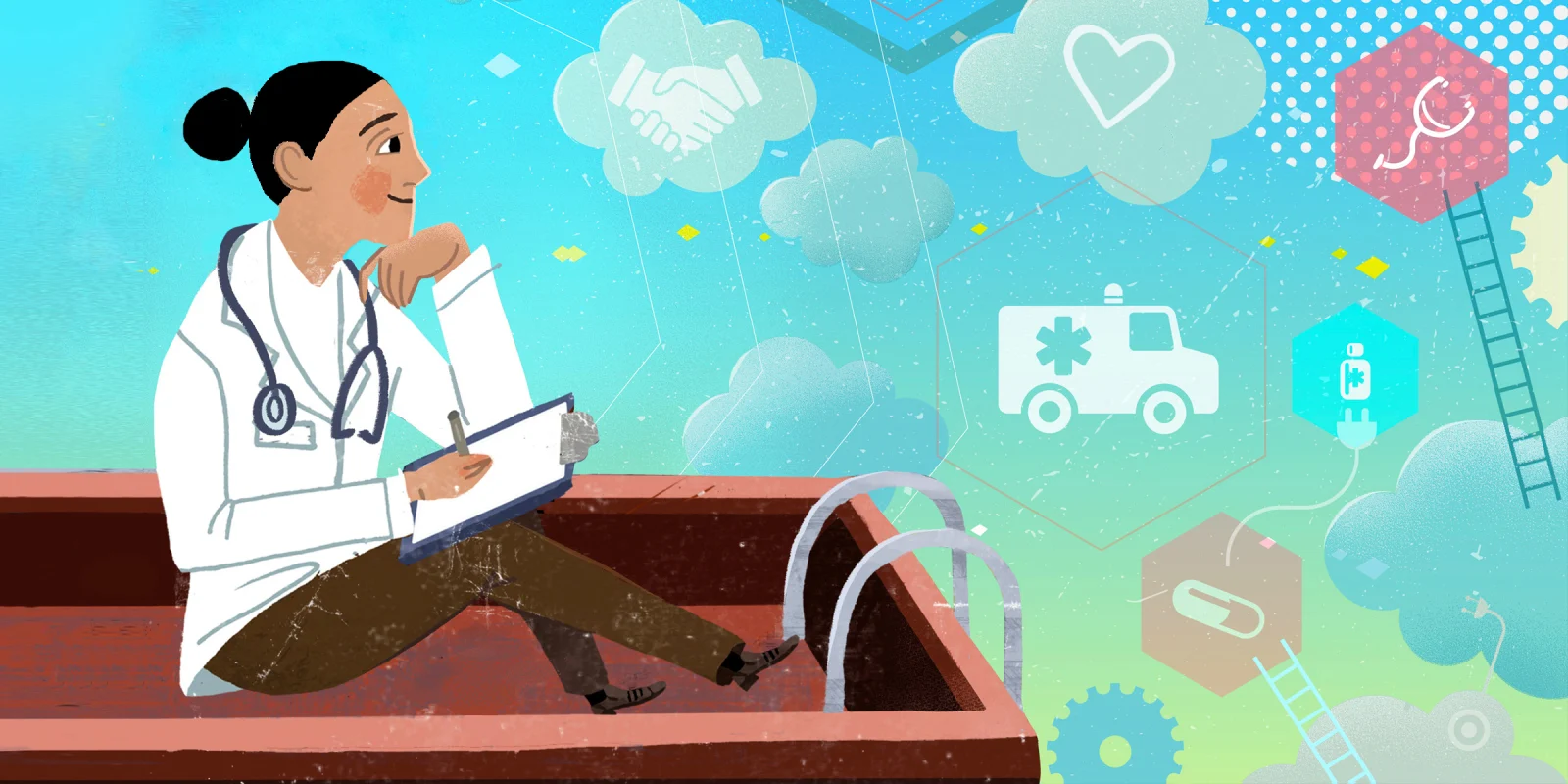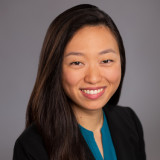“It has been a privilege to be your primary care doctor during my residency training,” I write, preparing a letter for my clinic patients as the end of residency approaches.
For the past three years, the lives of my patients and I have intersected during each clinic visit. Our relationship began with a hint of skepticism on their part — they wondered, Would I be a competent replacement for their former beloved doctor? I too had my doubts as a newly minted intern, hoping to build a connection with these strangers. Now I am scheduling final visits with each patient, saying goodbye, and transitioning their primary care needs. I have been surprised to feel saddened by these farewells.
Mrs. Holt, an older woman, was one such patient who affected me more than I could have anticipated. For nearly two years of the pandemic, our clinic visits were limited to video calls alone. Concerned for her own and for her husband’s safety, she had promised her husband to remain quarantined at home. At the height of the pandemic, Mrs. Holt and I had discussed her fear of COVID-19 infection, and each visit was an opportunity for me to ensure that she was still doing well. “Please stay safe too …” she would say before signing off at the end of each visit.
At first, Mrs. Holt’s worry for my safety caught me off guard, since I was the one looking after her health. Yet as the pandemic persisted, I found solace in her continued thoughtful messages. She had recognized the burden of COVID-19 on health care workers, and through her kindness, she had extended care for my well-being as well. Beyond the doctor-patient dynamic, I realized, we also had something deep in common: We had each witnessed the other endure the emotional, physical, and logistical challenges of the pandemic. After Mrs. Holt was fully vaccinated, I was elated to see her in person for the first time in clinic — and she was similarly relieved to see me. “We can finally connect in real life again,” she remarked with a smile. “I’m glad that you are doing OK too, doctor.”
With other patients, the connection slowly developed across time, and each appointment became a building block for them to trust me. When I first met Mary, a recent college graduate, I learned that she had been struggling with depression and anxiety. Although Mary had confided her mood concerns to me, she also expressed hesitation when I suggested treatment options or offered referrals to mental health practitioners. “I’m not ready for that yet,” she abruptly declined. Instead, she and I settled on a routine of monthly follow-up appointments where I would check in on her mood, anxiety, and stressors. Each appointment was also an opportunity to continue our discussion about treatments that could benefit her. Over time, I watched Mary open up to the idea of active treatment as we discussed her concerns about medication side effects and types of therapy. After a few appointments, she was willing to start an antidepressant, and even began meeting with a therapist. We still continued our follow-up appointments — only now, Mary was eager to share her progress, and I was ecstatic to celebrate the improvements in her symptoms compared to when we had first met three years prior.
At the start of my intern year, my close mentor and attending physician shared a piece of advice that I still remember: After a busy, long day (of which there have been many), think back to the patients that made it worthwhile. During my primary care clinic, having interpersonal connections with my patients has been such an unexpected gift. The patient relationships built across these past few years have been a humbling reminder of the privilege of being a physician. Beyond learning how to be more empathetic, I’ve learned how to survive in medicine: by meeting my patients on a human level, eye to eye, as our lives overlap during this period of time.
Turning to my page again, I know just what to write in my goodbye letter: “Thank you for trusting me with your health and well-being, and wishing you the best to come.”
How did you feel when you finished residency? Did you have any patient interactions that struck you as particularly meaningful? Share your experiences in the comments below!
Evaline Cheng is an internal medicine resident at the University of California, Los Angeles and an aspiring cardiologist who seeks to improve the delivery of cardiovascular care. As a lifelong journal writer, she now shares stories of narrative medicine to connect and project voices otherwise unheard. Dr. Cheng is a 2021–2022 Doximity Op-Med Fellow.
All names and identifying details have been modified to protect patient privacy.
Image by Luciano Lozano / Getty







